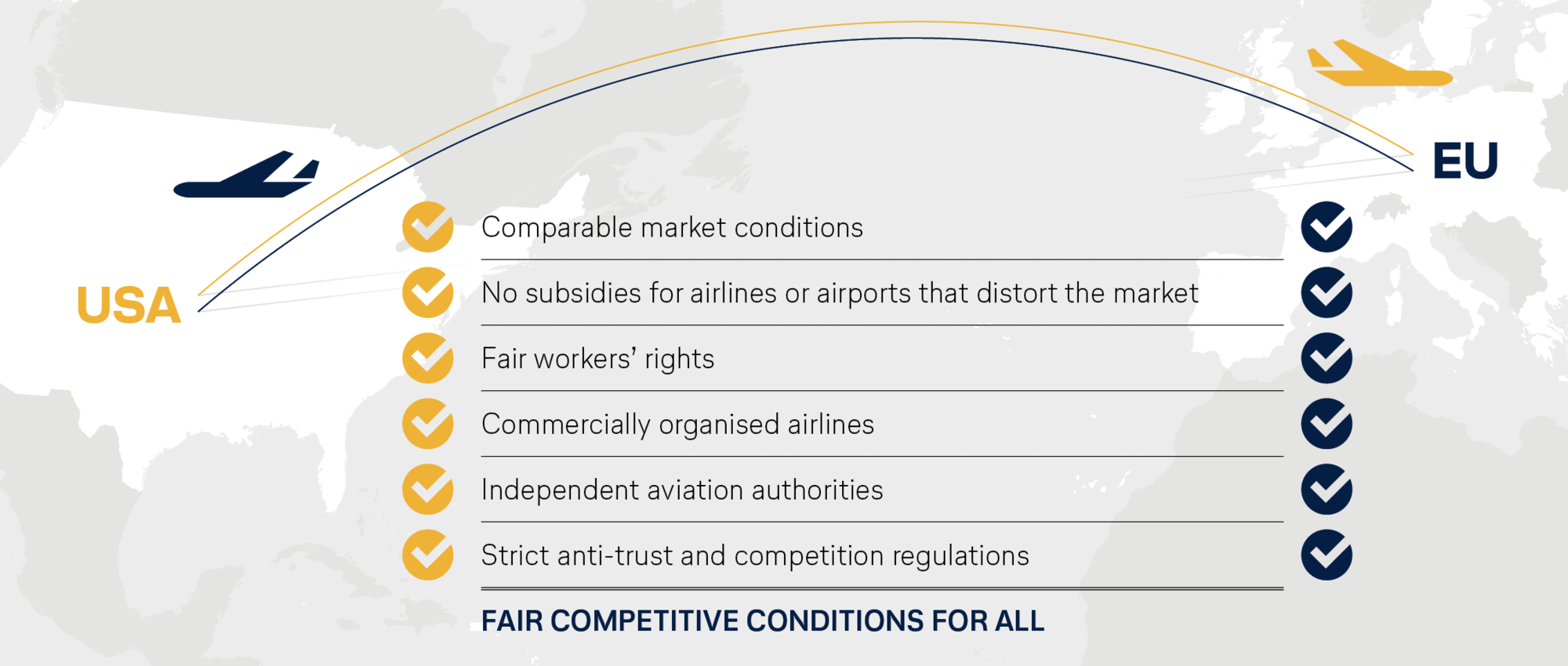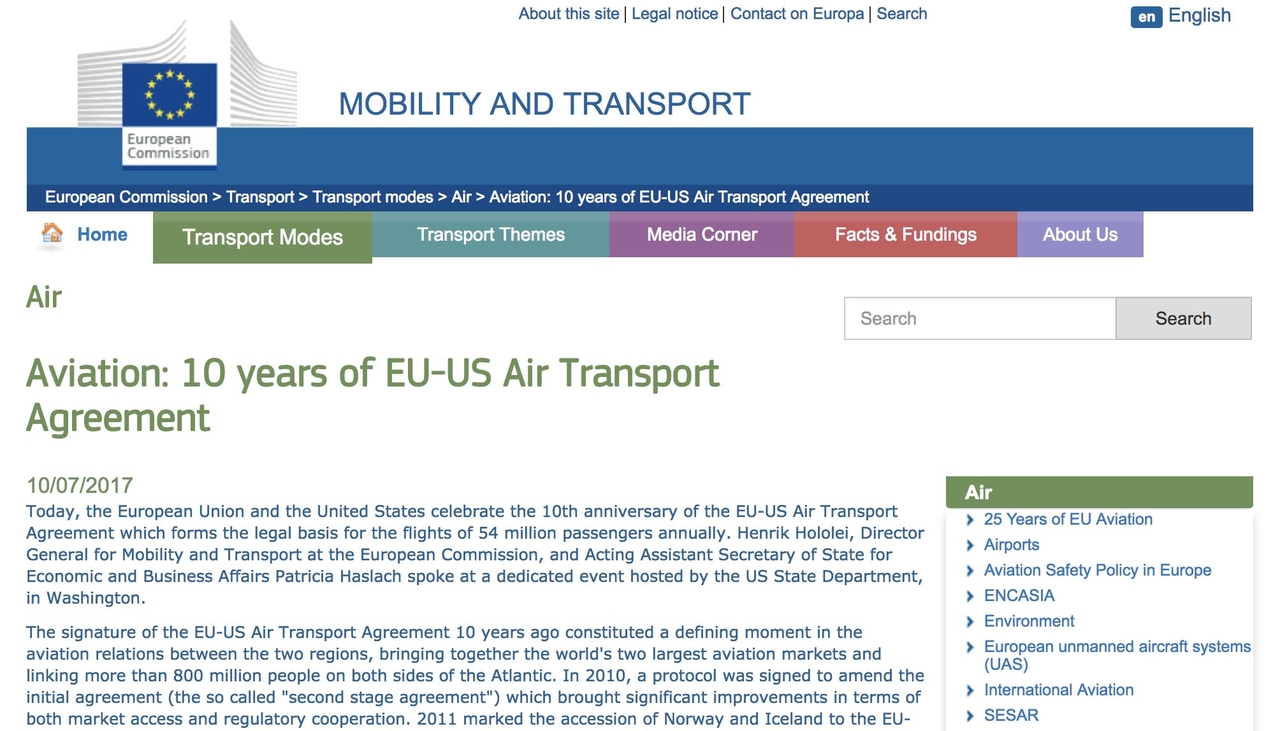Transatlantic air traffic
Blueprint for liberal market access
Transatlantic relations are currently under pressure. It is therefore all the more important to focus on
the things which unify us. For example: 10 years of open skies over the Atlantic – a milestone of
aviation policy and blueprint for continued liberalisation.
Three themes need to be given priority
The lost opportunities for growth are closely associated with national charges which other air transport locations do not have to reckon with.
- Aviation tax – in 2017 alone, German airlines had to pay EUR 590 million to the tax authorities in aviation tax. There are very few countries that place such demands on their airline industry – in fact, quite the opposite. Austria recently cut their aviation tax in half; Ireland and the Netherlands have abolished it completely. Three countries, one goal – to get rid of additional charges in order to stimulate growth far beyond just the airline industry. The figures for Germany are also convincing. According to the calculations of PricewaterhouseCoopers, abolishing aviation tax by 2020 would trigger an annual GDP growth of EUR 4.1 billion, would create 12,000 new jobs – and in doing so would bring in increased income for the tax authorities.
- Aviation security costs – in Germany, the costs for security checks on passengers and baggage are charged to the airlines in the form of aviation security fees. Between the years 2011 and 2017, these costs increased by 64 percent to EUR 693 million per year. In Germany, this figure is passed on in full to the airlines. The situation is different in Italy, Spain and the US, for example, where the state assumes up to two thirds of the costs. There is good reason for this, as the protection of citizens against terrorist attacks—which is, after all, the objective of the security checks—is one of the state’s core tasks. This is also the way the new federal government sees things and, according to the coalition agreement, they are in favor of the state taking on a larger share of aviation security costs.
- Operating hours – even as things stand today, the restrictions imposed on night flying in German airports are considered strict by international comparison. For example, Frankfurt, as an international hub, is completely closed between the hours of 11.00 pm and 5.00 am – a stark contrast to all comparable competitor airports in Europe and the Middle East. As the infrastructure—which cost many billions of euros—has therefore to be amortized within shorter working hours, the German air transport sector is effectively more expensive in structural terms. The ever-increasing additional fees levied on noise-related charges also represent a financial burden for airlines and lead de facto to a ban on night flights in economic terms.
10 YEARS OF OPEN AVIATION AREA
US and EU agree on essential aviation policies

Further content on the topic
Background information
10 years of the air transport agreement between the EU and the USA
Figures, data, facts and speeches on the Open Aviation Area from the EU Commission. The occasion was the tenth anniversary of the ratification in summer 2007. The following year, the Open Aviation Area became a reality.
